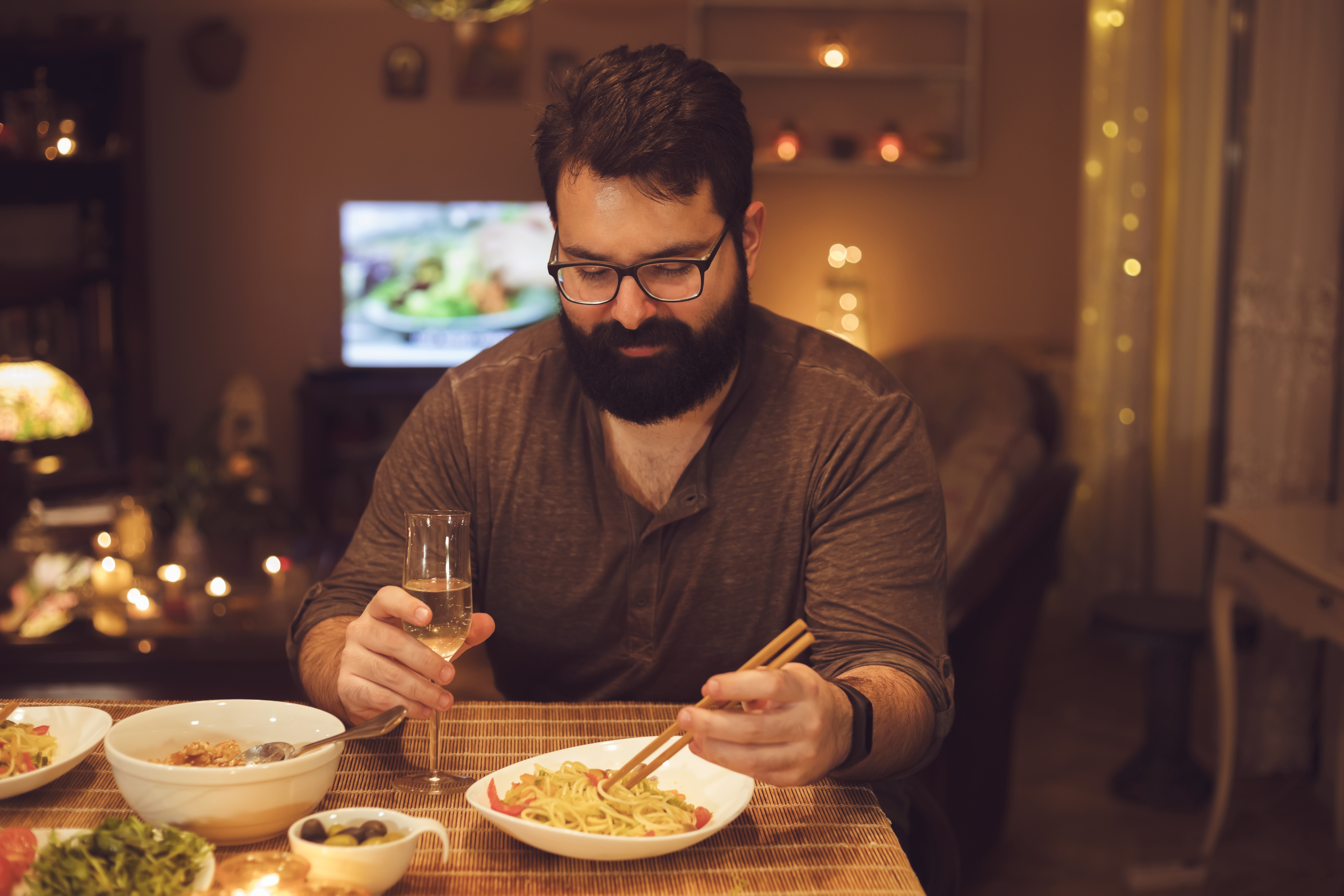
Young man eating vegan food and drink wine
Embracing Self-Worth: Your First Step to Transforming Emotional Struggles
You might feel like your relationship with food is a constant battle—a cycle of emotional eating and guilt that leaves you feeling trapped. You’re not alone in this struggle, and there’s a way out that doesn’t involve yet another diet. By embracing your self-worth, you can unlock the door to emotional freedom and healing. Ready to discover how this simple shift can transform your life? Let’s explore how self-love and mindset reprogramming can be your keys to breaking free. For more insights, check out this helpful resource.
Understanding Emotional Eating

Emotional eating often feels like an endless loop of frustration and self-blame. But understanding its root causes is crucial in breaking free from its grip. Emotional eating is not just about food; it’s about how we cope with emotions and stress. By recognizing the triggers and breaking the guilt cycle, you can begin to reclaim control over your eating habits and, ultimately, your life.
Recognizing the Triggers
Recognizing triggers is the first step in addressing emotional eating. These triggers can include stress, loneliness, boredom, or even happiness. It’s essential to identify what emotions lead you to reach for food as a comfort.
Consider keeping a journal to track your eating patterns. Note down what you eat, when you eat, and how you feel at the time. This can reveal patterns and help you pinpoint specific triggers.
By understanding these emotional cues, you can start developing healthier coping mechanisms. This might involve finding activities that distract you or talking to a friend. Begin by asking yourself: What am I really feeling right now? 🌱
Breaking the Guilt Cycle
Breaking the guilt cycle involves shifting your perspective on food and self-worth. After an episode of emotional eating, guilt often follows, perpetuating a cycle of shame and more eating. The key is to recognize that food is not the enemy; it’s your body’s response to emotional needs.
Start by practicing self-compassion. Instead of beating yourself up after emotional eating, acknowledge the behavior without judgment. Consider every slip as a learning opportunity rather than a failure.
Develop a forgiving mindset. Remind yourself that progress isn’t linear, and setbacks are part of the journey. When guilt arises, pause and affirm your self-worth, knowing that you are more than your eating habits. 💖
The Power of Self-Worth

Building a strong sense of self-worth can transform your relationship with food and your emotions. When you value yourself, you are more likely to make choices that nurture your well-being. Self-worth is a vital foundation for emotional healing, helping you move beyond self-sabotaging behaviors.
Building a Foundation of Self-Love
Self-love is more than just a buzzword; it’s a practice that fosters emotional resilience. Begin by recognizing your inherent worth regardless of achievements or setbacks.
Practice daily affirmations that reinforce your value. Simple statements like “I am worthy of love and respect” can shift your mindset over time.
Engage in activities that bring you joy and fulfillment. This strengthens self-love and provides a buffer against emotional eating triggers. Remember, loving yourself is not selfish—it’s essential. 🌸
Reprogramming Your Mindset
Reprogramming your mindset involves changing how you perceive yourself and your abilities. Many of us hold limiting beliefs that hinder our growth and healing.
Start by identifying these beliefs. Are there negative thoughts that replay in your mind? Challenge them with evidence of your strengths and achievements.
Consider working with a coach or therapist who can guide you through mindset reprogramming. They offer tools and support to transform your thought patterns. With patience and commitment, you can reshape your mindset to support your emotional freedom. 🌟
Path to Emotional Freedom

Achieving emotional freedom is about releasing the hold of past patterns and embracing healthier ways of living. This involves non-clinical coaching and practical tools tailored to your unique journey. By taking these steps, you can find lasting peace and fulfillment.
Benefits of Non-Clinical Coaching
Non-clinical coaching offers a personalized approach to emotional healing. Unlike traditional therapy, coaching focuses on action and results, guiding you towards specific goals.
With a coach, you can set clear objectives for your emotional health. Coaches provide accountability and motivation, helping you stay on track.
This approach is flexible and adapted to your needs, ensuring that you receive support that resonates with your personal growth journey. Consider exploring resources like the VK Circle’s program to learn more. 🌈
Tools for Binge Eating Recovery
Recovering from binge eating requires practical tools that address both emotional and physical aspects. Here are some strategies to consider:
Mindful Eating: Focus on your meals, savoring each bite without distraction. This helps you tune into hunger and fullness cues.
Stress Management: Incorporate relaxation techniques such as deep breathing or meditation to reduce stress-induced eating.
Support Networks: Join support groups or online communities where you can share experiences and gain encouragement.
These tools, alongside non-clinical coaching, can empower you to break free from binge eating patterns. Discover more about recovery resources here. 🌻
Explore our 90-day Emotional Freedom Program for a radical return to self-love and emotional clarity—it’s not a diet, but a powerful transformation! 🌟



